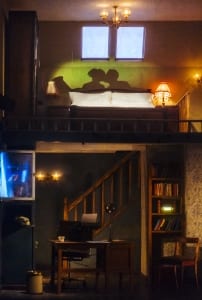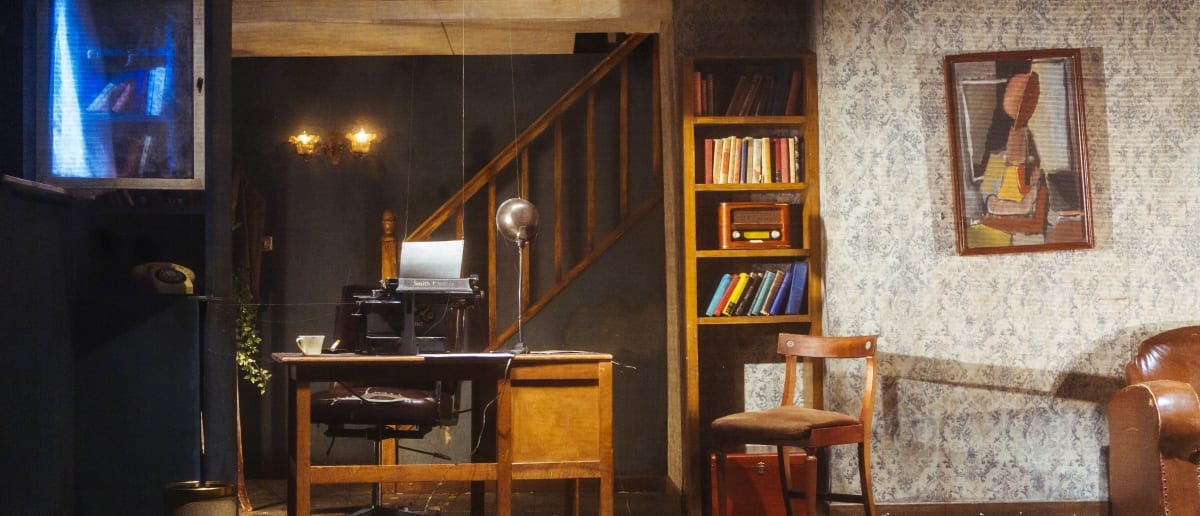As the title of this new Dead Center/Gate theatre production indicates, it is a play about a place. Indeed, the only actual living creature seen on stage during the play is… a cockerel.
Entering the Gate Theatre’s beautiful ornate room, you would not expect to find a set of headphones on every seat, not to mention the giant closed eye screened before the stage. Beckett’s Room is an experimental play and a highly sensorial experience that questions the nature of theatre and drama itself. Unlike most of audiovisual experiences we are used to these days, it puts the audio before the visual, forcing us to be attentive to every line of dialogue, to every footstep we hear while our eyes are lingering in the room, following ghosts. These ghosts, the characters, appear in reflections, shadows, and can be made out through their cigarette smoke or the creases they leave on the sofa.
The inanimate objects become alive through these ghosts, and witness, just like us, fear, love and even murder that happen in the room throughout the three acts of the play. They are actually moved by backstage puppeteers who create a visually magic choreography of objects.

One might think that a play without actors on stage must be dull and boring, but Beckett’s Room is definitely not. It happens in Paris during the Nazi German occupation, and Beckett and his partner Suzanne were members of the resistance, so this background quite obviously gives a lot of opportunity to create dramatic tension.
The sounds we hear help in building this very tension, as we fear along with the characters and become aware of any potential danger. Moreover, the choice of representing on-stage violence without actors was daring and efficient: people had to cover their eyes because the sight of a shadow being tortured was unbearable.
The play also subtly pays homage to Beckett as a playwright, using reflexive and sarcastic dialogue about characters not being able to really see each other (when we cannot actually see them at all), or about the Nazi officers who are everlastingly ‘waiting for Beckett’.
In the play’s second act, in which the main characters are Nazi German soldiers taking a hostage while in Beckett’s room, sarcasm is used a lot to emphasize absurdity. While it is a clever use of this kind of dark humour, the character of the mindless Nazi soldier lacks depth and feels a bit used and déjà-vu. This could unfortunately also be said about the other characters of the play. It does not have to do with the voice acting which is spot-on, but rather with a superficial construction of character in the writing itself.

